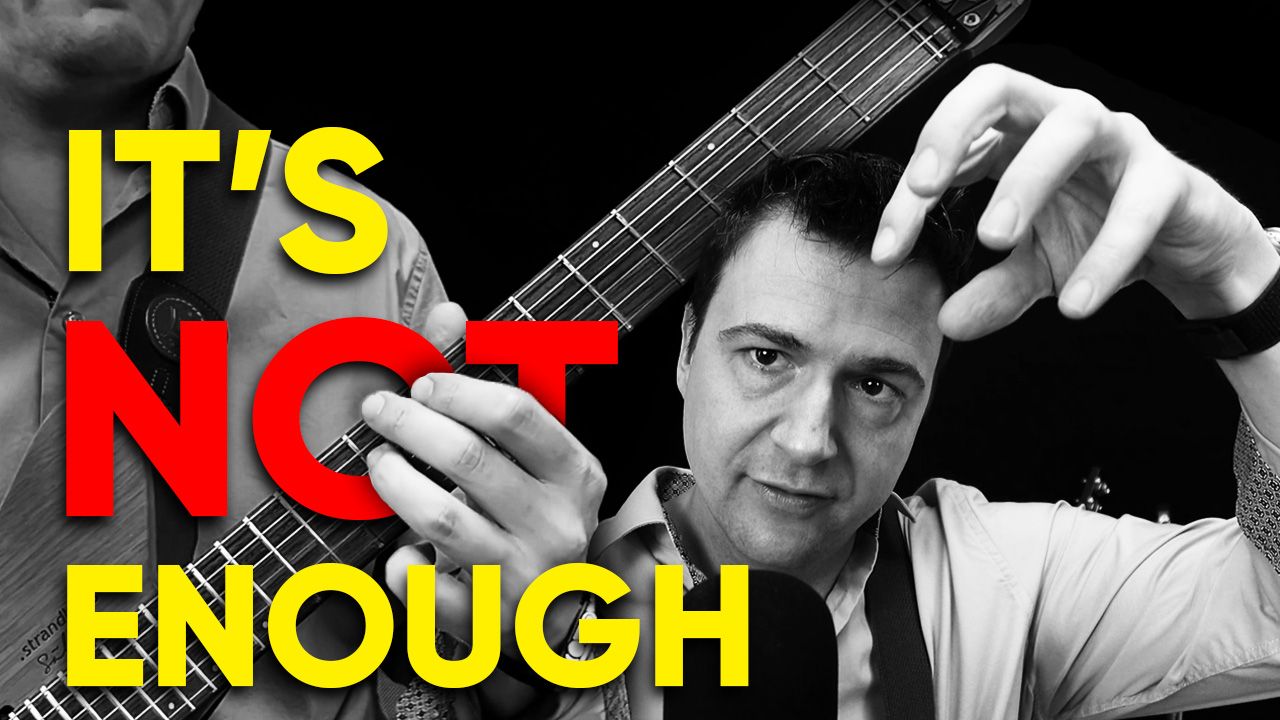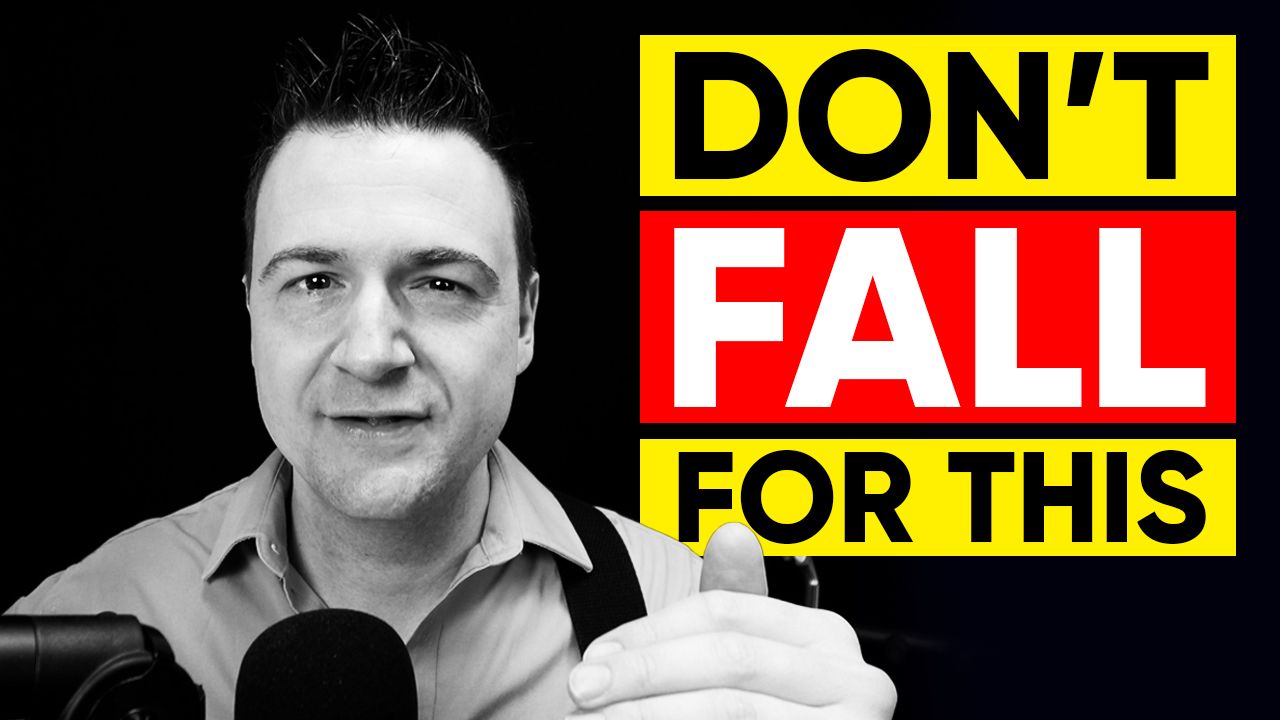
Level Up Your Jazz Blues Licks
Dec 04, 2020Guest Post by Leigh Fuge
Even if you’re very proficient in playing blues, entering the world of Jazz might seen like a tall order. Jazz is a theoretically and technically demanding world for guitar players.
Here are some crossover licks you can use with your existing blues repertoire to add a jazz flavour to what you do. We will be using the following scales for this lesson:
A Minor Pentatonic:

A Harmonic Minor:

For all the licks in this lesson, I will be basing the phrases mostly around pentatonic shapes, which will be immediately comfortable for anyone well versed in blues playing. I will be using the Harmonic Minor scale to add some outside notes and provide a jazz flavour to blues licks.
Lick 1:

This first lick is based around a series of triplet feel, ascending notes. Instead of the triplets containing three notes, there are two, a quarter note length and an eighth length. This provides a swing to the ascending run. The initial notes are taken from the pentatonic shape with the 8th fret of the A string and 6th fret of the D string being used from the Harmonic Minor.
Lick 2:

This lick starts in a typical blues fashion with a full tone bend on the 7th fret of the G before ascending through the pentatonic scale. In this case, we are adding an “outside” note from the Harmonic Minor on the 4th fret of the E and sliding it up to the 5th.
Lick 3:

This descending lick is taken totally from the Harmonic Minor and as such, has a slightly eastern flavour. The first 6 notes of the lick are played with a triplet feel (A quarter note and an eighth note) so that the lick has a swing to it.
Lick 4:

This pattern will sit very well with any blues type progression, starting with a slide from the 6th fret of the D (Harmonic Minor) to the 7th (Pentatonic), before entering a somewhat familiar feeling pattern from the Pentatonic scale before ending on the 4th fret of the G, a semi tone below the usual Pentatonic note of the 5th fret that you might end on.
Lick 5:

In jazz, you may see scale runs made up of descending pairs of intervallic notes. This can also be applied to a pentatonic style shape and works great over chord progressions from both genres. This run stays entirely pentatonic until the second bar where we bring in the 4th fret of the G and the 6th fret of the D which are both taken from the Harmonic Minor.
Lick 6:

This ascending Harmonic Minor run contains a lot of notes that appear in both scales used in this lesson making it a great crossover lick. The first two beats are ascending triplets before a faster grouping of notes made up of a sixteenth note, an eighth note triplet (played as a hammer on and pull off), another eighth note and a full tone bend that is a dotted eighth in length.
Lick 7:

This lick is another triplet feel lick with two notes per triplet for the first two beats, again sticking with a quarter note and eighth note before heading into a three note triplet run and a final two note triplet feel phrase to end. If you substitute the 4th fret of the G for the 7th, the lick would assume a very familiar feel as it would be typical of a blues lick you might play while improvising. Adding the outside notes from the Harmonic Minor and applying the triplet feel swing will make this blues lick assume a jazz sounding feel.
Lick 8:

Descending triplets are a great way to add some jazz style speed to your blues licks. This lick uses the Harmonic Minor with some Pentatonic notes in to add to the familiar feel. The note groupings in this run cross between strings, each triplet contains one note on a string followed by two notes on the following string. This continues all the way down the scale until the final slide from the 6th fret to the 7th fret on the D, culminating in the final note being sustained for a whole beat.
Lick 9:

In jazz style guitar, even ascending scale runs often incorporate the notes on that string, which may be typically played sequentially, to be re-ordered to change the flow of the pitch. This phrase built up of ascending triplets incorporates that idea on the third beat. The three notes on the G are re-ordered which gives the final jump from the 4th fret of the G to the 5th fret of the B a different intervallic gap. Large interval gaps are used a lot in jazz phrasing.
Lick 10:

Here we have a very typical blues lick to start, a full tone bend on the G followed by an ascending and descending scale run through the familiar pentatonic notes. Once we reach the end of the second triplet, we bring in some Harmonic Minor notes. Sliding up in pitch while descending through a scale is a very interesting way to phrase your notes and can add a very interesting colour to your blues licks.
Summary
All the licks in this lesson are in the key of A Minor. They will work perfectly over an A Minor I IV V blues progression or any A Minor jazz progression. The licks are transposable so if you want to play them in other keys just move the position of the scale shapes to suit the key that you want to play in.
Guest Post by Leigh Fuge
Leigh Fuge is a professional guitarist, session musician and teacher from the UK. He has written for some of the world’s biggest guitar websites and publications and regular teachers students face to face and online. He works closely with MGR Music to provide high quality guitar lessons and has taught hundreds of students over the years he has been teaching.









